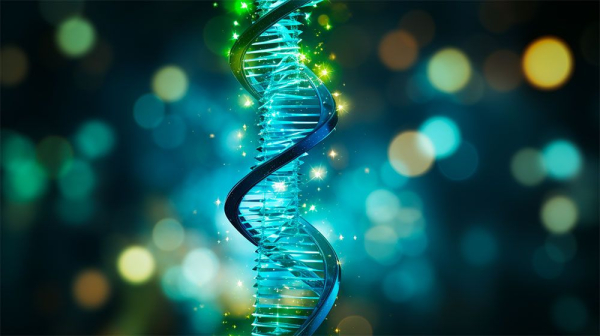The 34th Annual Ig Nobel Prize ceremony took place last Thursday at MIT. Every year since 1991, around the time the recipients of the genuine Novel Prizes are announced, the Ig Nobel Prize awards the ten achievements that "first make people laugh, and then make them think. They're meant to celebrate the imaginative and encourage more interest in the sciences.
The first award for Biology was awarded to Robert Klark Graham, for pioneering development of the Repository for Germinal Choice, a sperm bank that accepted donations only from Nobellians and Olympians. While I jokingly tell my kids they have "superior genetic potential," this type of research and belief can have serious consequences.
In 1996, Physicist Robert Matthews earned a prize for his paper "Tumbling Toast, Murphy's Law and the Fundamental Constants," which sought to explain why toast tends to fall buttered-side down.

In 2002, another physicist, Arnd Leike, earned the honor after using the law of exponential decay to explain the behavior of beer foam.
And in 2017, Marc-Antoine Fardin earned the honor for using fluid dynamics to finally answer the eternal question: "Can a cat be both a solid and a liquid?" In case you are squeamish, no blender was involved in that experiment.
While these are funny examples, they're rooted in real science. As is the focus of this article, this year's Ig Nobel Prize for Demography.
In my circles, it is becoming more common to discuss how to live past 100 — and not just how to live beyond that number ... but to do so with a high quality of life.
A popular concept around that subject is Blue Zones - areas where people seem to live longer and healthier. There's even a Netflix documentary on the subject. Notable places include Sardinia, Italy; Okinawa, Japan; and Ikaria, Greece.
Saul Justin Newman challenged that belief with his research, which found that extreme age records tend to come from areas with no birth certificates, rampant clerical errors, pension fraud ... and even short life spans.
While longevity in the zones has primarily been attributed to diet, community, and genetics, Newman found that many of these claims were based on errors - or outright fraud. Instead, these regions are actually characterized by the opposite of what you would expect ... low incomes, low literacy, high crime, and short lifespans.
To a certain extent, it makes sense. In areas where you're struggling to make ends meet ... why wouldn't you commit pension fraud? In fact, in 2010, the Japanese government realized that over 80% of the people aged over 100 were actually dead. Part of what made this possible was that America bombed the halls of records in that area during the war.
Here's an interview with Saul Justin Newman on the subject. He's tracked over 80% of the people aged over 110 worldwide. Almost none of them have a birth certificate. Only about 10% have a death certificate.
What does this mean for human longevity?
While the stories of these 110-year-olds may mostly be fake - as mentioned in my recent article - longevity is on the rise, and there are many modalities to increase your lifespan.

The goal isn't just to stay alive longer; it's to live life to its fullest for as long as possible.
There are people living to 100, and there are plenty of people living healthily into their 70s, 80s, and 90s.
We're taking steps in the right direction. Technology and medicine are both evolving quickly.
But, like with longevity data, improvements in any space need to be met with a grain of salt.
If it sounds too good to be true ... it generally is. Not always. But, generally.
Multi-Tasking with ChatGPT's Advanced Voice Interface 'or' Unlocking the Power of Voice Agents: A New Frontier in Content Creation
This article was created using a unique process compared to our usual approach. To test ChatGPT’s Advanced Voice capabilities, I decided to talk with it while walking around my neighborhood. I wanted to explore if it could help me be productive while getting fresh air and exercise.
What follows is the transcript, with only some light editing and formatting to better provide insight into the process and its outputs.
The embedded mini-article that ChatGPT produced isn’t the main takeaway here. What interests me is the quality of the article, considering how little effort went into creating it. It was so painless and quick that I found myself contemplating how easily I could use this process for other types of productive output. In fact, that concept is a key focus of the mini-article below.
That said, this is just a snapshot of AI’s current capabilities. If I were to repeat this experiment in six months or a year, I’m confident the results would be even more impressive. I'm also confident that if I'd asked it to flesh out the article, I would have been more impressed as well.
I’d probably consider this article “good enough” if I weren’t someone who takes pride in my writing and thinking. Nonetheless, I believe it’s a solid starting point. For the record, my son (who helps write these weekly commentaries) disagrees. He liked our article and its premise – but "hated" what ChatGPT produced.
Sure, some additional work and deeper reflection could make it meaningfully better ... but it’s impressive how quickly and easily we came up with something valuable (that could become even more valuable with a little extra effort).
In conclusion, these content creation capabilities represent a key shift: the content bar will rise, and the minimum standard for what’s acceptable will get higher. But as the bar for “acceptable” rises, I think fewer people will strive for greatness. That’s where you can extend your edge ... if you’re willing to do the extra work.
Here is the Chat.
Unlocking the Power of Voice Agents: A New Frontier in Content Creation
In today’s fast-paced world, efficiency and innovation are essential, especially for executives and entrepreneurs. One of the most exciting developments in this arena is the rise of voice agents — AI-powered assistants that are transforming how we create content. Imagine turning a simple walk around the neighborhood into a dynamic brainstorming session or a full-fledged article creation process. Let’s explore how voice agents can open up new horizons for you.
Voice Agents: A New Way to Write
Picture this: you’re out for your morning walk, and instead of just enjoying the scenery, you’re also creating content. With a voice agent, you can do just that. Engage in a conversation with your AI assistant, and the spoken ideas seamlessly transform into written words.
Benefits of Voice Agents in Content Creation
Voice agents excel at helping you brainstorm. Throw ideas at them, and they’ll help you explore different angles, often sparking new thoughts in the process.
Gone are the days of waiting for feedback. With a voice agent, you get instant responses. As you articulate your thoughts, the AI provides real-time feedback, helping you refine your ideas on the fly. It’s like having an editor by your side, 24/7.
Speaking your thoughts can lead to a more natural, conversational tone in your writing. This style is increasingly popular, as it engages readers and makes complex topics more accessible.
Examples of Voice Agent Applications
Voice agents can act as conversation partners, helping you practice new languages in a low-pressure environment. They can introduce vocabulary, correct pronunciation, and even engage in dialogue, making language learning more interactive and fun.
Organizing tasks and deadlines through natural conversation is another strength of voice agents. Discuss your project needs, and let the AI help you prioritize tasks, set reminders, and keep you on track.
Voice agents can offer a safe space for expression and reflection. They can guide you through mindfulness exercises, provide mood trackers, or simply lend an empathetic ear, offering support whenever you need it.
Imagine co-writing a story or developing a project with your AI assistant. Voice agents can contribute ideas, help you overcome creative blocks, and add a new dimension to collaborative efforts.
Some Challenges to Consider
As you consider these applications, think about other areas where voice agents could revolutionize your work or personal life. Could they streamline your decision-making processes? Might they open up new avenues for customer engagement? The potential is vast, limited only by our imagination.
Conclusion
Voice agents are changing how we create content, offering benefits beyond simple convenience. From brainstorming to project management, and from language learning to mental health support, the possibilities are endless. As we continue to integrate AI into our daily lives, voice agents will evolve into increasingly powerful tools for innovation and growth. So, the next time you head out for a walk, consider inviting your AI assistant along — you might just discover your next big idea.
I’d love your feedback on this ... and I’m curious to learn how you’re using AI or want to use AI.
As I’ve said before – we live in interesting times.
Onwards!
Posted at 04:20 PM in Books, Business, Current Affairs, Gadgets, Healthy Lifestyle, Ideas, Just for Fun, Market Commentary, Personal Development, Science, Web/Tech | Permalink | Comments (0)
Reblog (0)